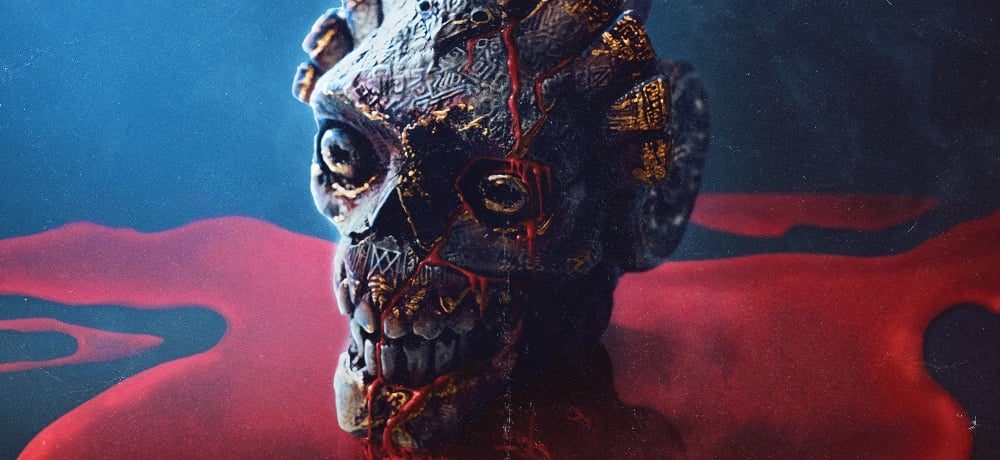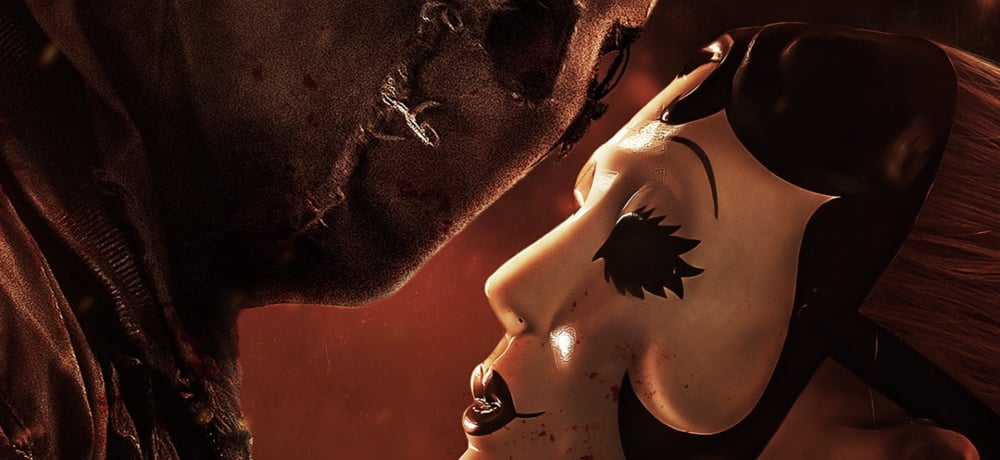





This weekend, 47 Meters Down: Uncaged swam its way into theaters everywhere, immersing audiences in the terrors of a cave diving excursion gone horribly wrong when several sharks show up, putting the sequel’s protagonists squarely in harm’s way. Daily Dead had the opportunity to briefly speak with the film’s co-writer/director Johannes Roberts about mixing things up for the 47 Meters Down follow-up, and how he prepared his actors for the arduous shooting experience.
Roberts also discussed collaborating with Uncaged cinematographer Mark Silk on the underwater photography for the film, the challenges of creating an underwater city, and briefly chatted about his intention to tap into the scariness of the Resident Evil video game series for his upcoming filmic reboot.
Coming into Uncaged as a sequel, how conscientious was it on your part that you knew you had to change it up a bit for this film and tap into other ways that being in the ocean and being amongst these predators can be truly terrifying?
Johannes Roberts: You just have to be interested in what you're doing as a director, really. And when I was approached to do the sequel, I had to try and find the story. It's like, “Well, we can't have people going to a shark cage again,” because you don’t want to give audiences the same thing all over again. So I had to figure out, what story can I tell that's actually going to interest me?
I had learned how to cave dive on the first movie with the line producer, and it's amazing, but it's terrifying. It's just incredible to go down these places that no human really ever gets to see. And I was like, "Do you know what? I'd love to just do a movie down there and see how that photographs. And what would happen if we saw a shark down [there]? That would be just terrifying." So that was really where it came from.
How did you prepare the cast for the things that they were going to have to endure while making this project? Because this is a very physical shoot. This isn't just walking onto a stage and saying your lines or anything like that. There is the physical, the emotional, the mental aspects of being underwater a great deal that they're going to have to deal with, which seems like a lot to contend with.
Johannes Roberts: Yeah, I was very keen to stress to them early on just how hard this shoot was going to be. We auditioned far and wide, and really made sure that when we spoke to them, that they knew that this was going to be a grueling shoot. And I was very keen to meet four people that I felt had the right energy to carry this through and I think I succeeded in that because I had so much fun with them. They were just—delightful is not a word I use often, but actually, they really were very funny.
Each one of those women were very different, and each of them brought a different energy to it, but they were all so committed to just learning and doing everything. They did all their stunts, too. When they're jumping off the cliff into the water, that's them doing it for real. When they're taking their masks off underwater, when they're squeezing through gaps, or climbing up ropes and in the caves and stuff like that, they're all doing it. They really threw themselves at this, and it was fun to see them go for it.
Can you talk about working with Mark [Silk, cinematographer]? How much did he bring to this project in particular and help you navigate these waters, so to speak, in terms of being able to really heighten the claustrophobia and the confusion that we often see in Uncaged?
Johannes Roberts: That's lovely to hear. I couldn't do these movies without Mark, to be honest. He's so funny, because out of water, he's enormous. He's 6'7," like a duck out of water, and he’s not the most elegant person. Sorry, Mark [laughs]. But then you put him in water, and he's just like this fish. It's unbelievable. He works a lot with the gaffer, Bernie Prentice, and together they're just an amazing team that lit the whole sets and everything.
To be honest, the core three people—Mark, Bernie [Prentice], and David Bryan, who built the sets—together they created this whole world that just enabled me to just have fun. It's like a playground for me to just point the camera, and everywhere it looks great. But yeah, Mark's the top guy when it comes to underwater cinematography. I'm above water when I direct, and he's underwater, but he doesn't have any coms, so there's no way that he can speak to me. I can speak to him, because I have a speaker in the water, but he can't speak to me. So, you learn to have to have this unspoken dialogue, almost like you share this slightly psychic connection with each other. It’s a really good relationship, and I love working with him.
You just mentioned David, who I also wanted to discuss, because I’m fascinated by production design, and in this, he has to build these environments that also have to be able to sustain being submerged for the shoot, which I feel like would be a very different approach for designers to have to work through.
Johannes Roberts: Absolutely. Look, it's super, super tough and the scale of what we were doing with the underwater sets here has never been done before. There was a movie, quite a big movie, that filmed not long ago, where they built a whole underwater village and had the wrong materials, and the whole thing just disintegrated. So it is very, very tricky. On the first movie, we used bags of the wrong sand and destroyed the whole tank, and it's a real problem, because nobody does this. How do you know what you're doing if no one has ever done it before?
At one point, we put in this staircase of the city, and it's three tons of steel. I come to set, and David's there, and he's like, "This staircase is floating." And I'm like, "How can that be possible?" Because the walls have been built out of a different type of material than everything else, somehow this three tons of steel are floating. Honestly, it's amazing that we didn't have more problems. It was an incredible logistical feat that I don't quite know how we got through, to be honest, but we did it, and that was all due to David.
I know we're getting really close on time, but I would be remiss if I didn't at least ask quickly about the upcoming Resident Evil movie. I'm a big fan of the original series, I love the video games as well, and I'm really excited for what you can bring to this. Is there a different kind of pressure coming into something like Resident Evil because it is an existing property and there are millions of fans worldwide?
Johannes Roberts: You know what? I haven't really allowed myself to think about it. I mean, I'm very conscientious that it is something that does have this enormous following and fan base, and I'm very conscientious to want to respect that, and to deliver the fans something that I think they are really going to love. But what it comes down to is that I'm such a huge fan of these games, because I love how truly scary they are, so I really just want to be able to deliver that to an audience. And I’m working hard to do just that.
---------
In case you missed it, read Heather Wixson's review of 47 Meters Down: Uncaged.